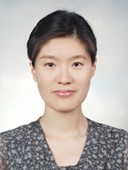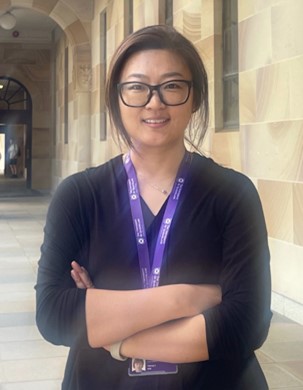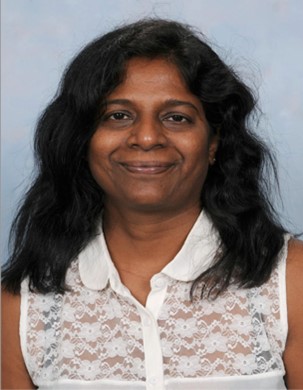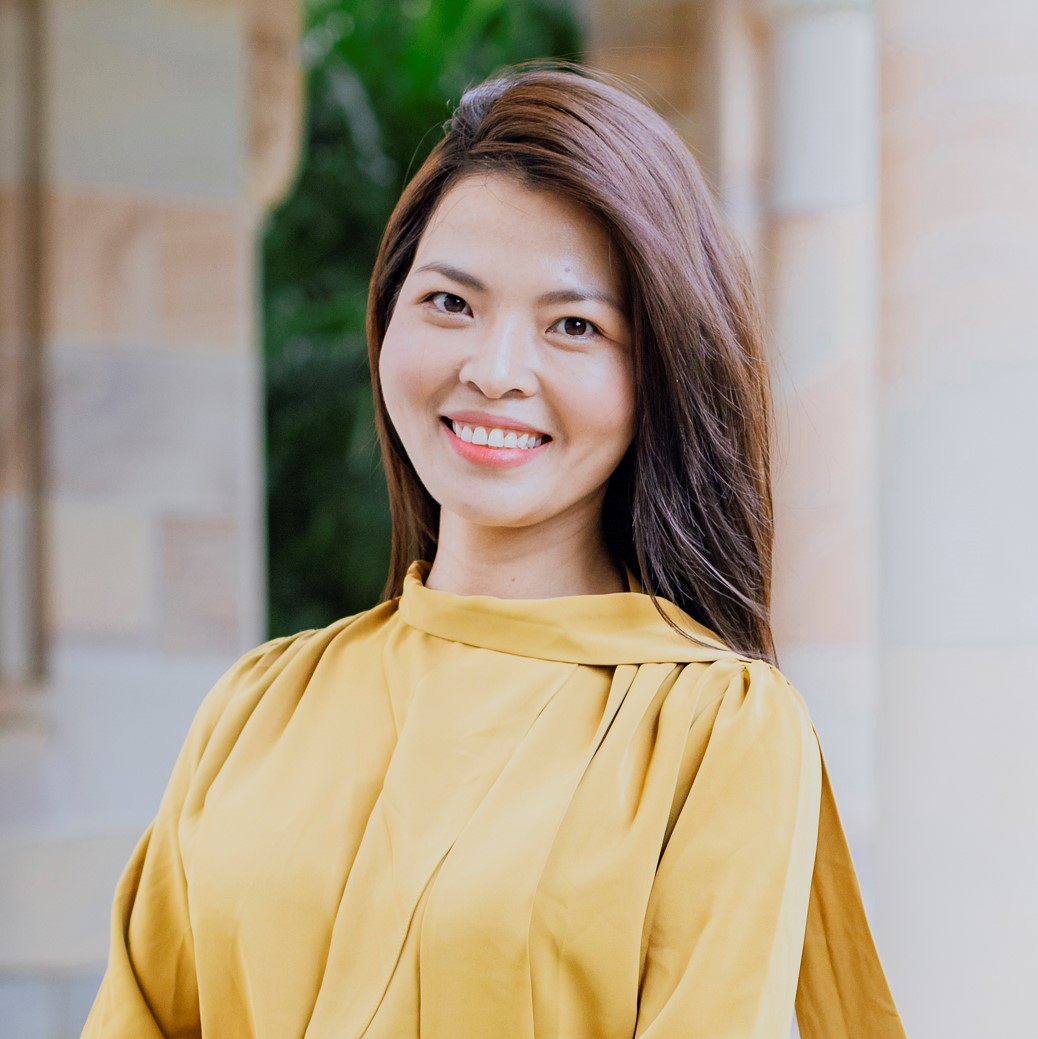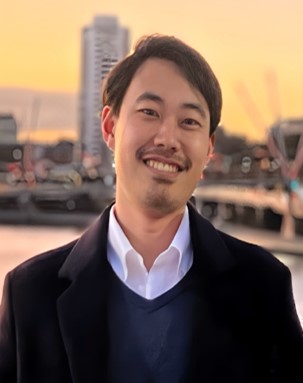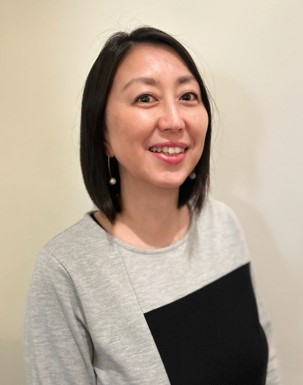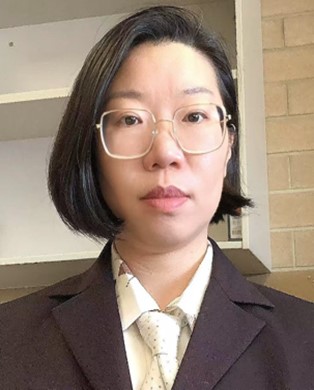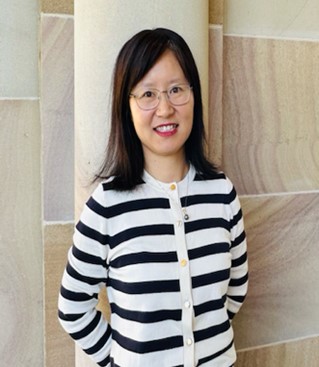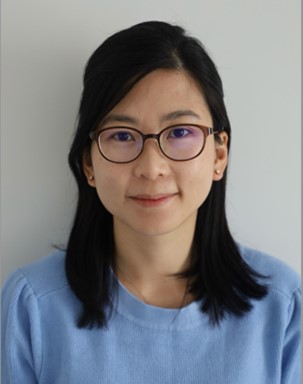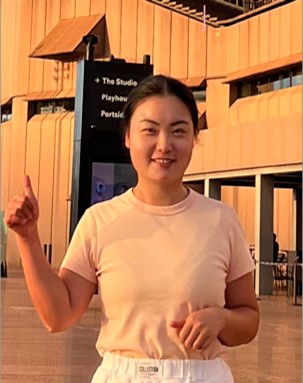ealss-speakers and abstracts
On this page, you will find titles and abstracts from our keynote speaker and presenters.
Keynote Speaker - Dr Seong-Chul Shin
Title:
Fostering Heritage Language Practices in Asian Communities: Perspectives from Korean Teachers in Australia
Abstract:
Australia’s rich multilingual tapestry includes over 3.5 million speakers of Asian languages—yet many of these languages remain vulnerable in the face of English-language dominance, limited bilingual pathways, and shrinking formal enrolments. This keynote explores the question: how can we sustain and empower Asian language communities in ways that are both inclusive and future-facing?
Drawing on recent research into Korean heritage language education—including insights from 24 community-based teachers—this address highlights how culturally embedded, communicative, and differentiated pedagogies are fostering deep connections to language and identity among younger learners. Yet despite this dedication, community educators face systemic barriers: lack of recognition, time constraints, and resource scarcity.
This presentation calls for a bold reimagining of multilingual education in Australia. Through coordinated policy support, expanded bilingual programs, and strategic collaboration among schools, families, and cultural institutions, we can move beyond preservation toward empowerment. Heritage language learning is not simply a personal or cultural project—it is a national responsibility. What kind of multilingual future do we envision for Australia—and who will lead us there?
About the presenter:
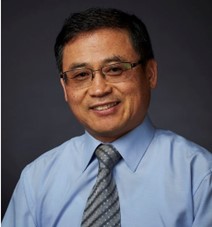 Dr Seong-Chul Shin is Senior Lecturer in Korean Studies at the University of New South Wales (UNSW), where he has taught and researched for many years. He holds a PhD in Linguistics (UNSW), a Master of Applied Linguistics (Macquarie), and a Master of Education (Yonsei). His research focuses on applied and educational linguistics, heritage language education, and sociolinguistics, with a particular focus on Korean in L2 and multilingual contexts. Dr Shin has published widely, including books on learner errors, Korean heritage language maintenance, and learner development. He has served on editorial boards and national and international advisory bodies in Korean language and education. A frequent contributor to scholarly and community discourse, he is committed to sustaining language and identity across generations. He has held fellowships from The Korea Foundation and the Academy of Korean Studies and continues to supervise research students and engage with language communities in Australia and beyond.
Dr Seong-Chul Shin is Senior Lecturer in Korean Studies at the University of New South Wales (UNSW), where he has taught and researched for many years. He holds a PhD in Linguistics (UNSW), a Master of Applied Linguistics (Macquarie), and a Master of Education (Yonsei). His research focuses on applied and educational linguistics, heritage language education, and sociolinguistics, with a particular focus on Korean in L2 and multilingual contexts. Dr Shin has published widely, including books on learner errors, Korean heritage language maintenance, and learner development. He has served on editorial boards and national and international advisory bodies in Korean language and education. A frequent contributor to scholarly and community discourse, he is committed to sustaining language and identity across generations. He has held fellowships from The Korea Foundation and the Academy of Korean Studies and continues to supervise research students and engage with language communities in Australia and beyond.
Presenters
Jung Min Seo
jmseo831@hufs.ac.kr, Hankuk University of Foreign Studies
Title: Teaching Arabic in South Korea: Straddling Global Aspirations and Local Ideologies
Abstract: This study examines Arabic language education in South Korea, highlighting the tension between global ambitions and local ideological constraints. Recent decades have witnessed Arabic gaining prominence in South Korea through the country’s economic ties with the Gulf, the inclusion of Arabic in its national college entrance examination (the College Scholastic Ability Test, CSAT), the growing influence of Hallyu (the Korean Wave) across Arab countries, the expansion of medical tourism, and the arrivals of Yemeni asylum seekers. These developments have positioned Arabic as a language facilitating global opportunities and engagement in South Korea.
Nevertheless, Arabic pedagogy remains narrowly focused on Modern Standard Arabic (MSA), neglecting consideration of regional dialects and sociocultural contexts. This may be reflective of an entrenched language ideology that prioritizes standardization and decontextualization while reinforcing stereotypes of Arabic speakers, such as associating them with terrorism or Islamophobia. Through analysis of curricula, textbooks and public discourse, this study reveals how Arabic is merely symbolically included and not germanely incorporated in the educational landscape.
This research postulates that Arabic language education in South Korea is shaped by both pragmatic motivations and cultural politics. It argues for the necessity of a more inclusive and critical approach, particularly one that acknowledges the sociolinguistic realities of Arabic and promotes intercultural understanding beyond scholastic performance and global branding.
Bio: Dr Jung Min Seo is a Research Fellow and Lecturer at Hankuk University of Foreign Studies (HUFS). Her research interest is in Arabic language education and sociolinguistics, primarily focusing on integrating culture and dialect into the Arabic curriculum. Dr. Seo received her Ph.D. in Arabic Linguistics from the University of Texas at Austin.
Haeng A Kim
haenga.kim@uq.edu.au, The University of Queensland
Title: Repositioning Assessment as a Learning Opportunity: Student-Centred Socratic Questioning in the Senior External Korean Language Exam
Abstract: I aim to elucidate how external assessments can be re-positioned to support language development, cultural identity, and student engagement in Asian languages, specifically focusing on Korean language. Drawing on three years of experience as a lead marker for the Senior External Exam in Queensland, I offer an insider's perspective on how speaking tasks can inspire learning beyond the test.
The current exam includes a bilingual written task and a speaking component, where students present a prepared speech and respond spontaneously to marker questions. To enhance learner agency and deepen engagement, I propose integrating a student-led Socratic questioning task into the speaking assessment. This approach encourages students to ask reflective, culturally grounded questions while flipping the traditional roles and shifting the focus from performance to enquiry based on the recognition that learning emerges not only through answering, but through questioning.
A structured guideline supports the task, prompting inter-language comparison and cross-cultural reflection. The model works within existing assessment frameworks and aims to generate positive washback by encouraging meaningful preparation. In this presentation, I provide sample questions and marking rubrics for practical applications. By making questioning central to the speaking task, I promote student-centred reflective learning and sustained engagement with Korean language through culturally relevant assessment practices.
Bio: Haeng A Kim works as a lead marker and assessment validator for the Senior External Exam at QCAA. Her academic background includes a TESOL from Georgetown University, a Master’s in Applied Linguistics from the University of Cambridge. She is currently a PhD scholar at the University of Queensland.
Aruni Arachchige
aruniari@hotmail.com, Yasodhara Sinhala School
Title: Sinhala Language Recognition in Queensland Senior Curriculum
Abstract: Sinhala, the primary language of the Sinhalese people of Sri Lanka, holds cultural and linguistic significance for thousands of Australians with Sri Lankan heritage. Despite its relatively small speaker base—approximately 15,000 nationally and 3,300 in Queensland—Sinhala plays a vital role in preserving cultural identity and fostering intergenerational communication within diaspora communities. In the context of Australian senior education, Sinhala is recognized under the Collaborative Curriculum and Assessment Framework for Languages (CCAFL), allowing students in select states, such as Western Australia, to study it as an ATAR-contributing subject. However, in Queensland, Sinhala is not currently offered through the Queensland Curriculum and Assessment Authority (QCAA) Senior External Examinations, limiting formal academic pathways for students wishing to pursue the language at a senior level. This gap highlights the need for broader inclusion of community languages in mainstream education, especially in multicultural states. Learning Sinhala not only supports cognitive and academic development but also enhances students’ global awareness and cultural competence. Expanding access to Sinhala in senior curricula would align with Australia’s commitment to linguistic diversity and multicultural education, offering equitable opportunities for heritage language learners to thrive academically and culturally.
Bio: Aruni Arachchige is a senior mathematics teacher in Queensland since 2015. She came to Australia on a government scholarship in 1990 to study engineering at Monash University. With experience in engineering and lecturing, she now also volunteers as academic coordinator and teacher at Yasodhara Sinhala School since 2014.
Nguyen Duong and Hao Tran
Nguyen Duong (duong.nguyen@yeutiengviet.net), Yeu Tieng Viet Language School
Hao Tran (hao.tran@uq.edu.au), The University of Queensland
Title: “My Vietnamese” - How Vietnamese Textbooks for Heritage Language Learners Shape their Cultural Understanding
Abstract: Language is not only a tool for communication but a carrier of cultural identity and heritage (Kramsch, 1993). For heritage language learners in multicultural contexts like Australia, learning the community language involves navigating complex cultural meanings (He, 2006; Lo Bianco, 2010). Despite Vietnamese being one of Australia's most widely spoken community languages, it is not part of mainstream schooling (Tran et al., 2024), and little research has examined how culture is taught through Vietnamese textbooks in community settings. In this presentation, we will use critical discourse analysis (Lee, 2023) and visual image analysis (Kress & van Leeuwen, 2021) to examine a Vietnamese textbook series used in a language centre in Australia to teach Vietnamese as a heritage language. It explores how poems and music, dialogues, imagery and themes shape learners’ understanding of what it means to be Vietnamese. The analysis reveals that besides traditional values such as filial piety and respect for elders are often emphasised, it is necessary to represent current real-life experiences in Vietnam or transnational influences to foster an awareness of ethnic roots and develop their bilingual identities among Vietnamese learners. Our presentation advocates for a culturally sustaining pedagogy as well as how textbooks accommodate the hybrid identities of second- and third-generation learners (Pham & Kohnert, 2014), and in turn reflecting learners’ diverse realities and supports critical engagement with culture.
Bio: Dr Nguyen Duong is the Director of Yeu Tieng Viet, a language school in Brisbane offering Vietnamese courses for children in around 30 countries. He is one of the Global Vietnamese Language Ambassadors. His research interests include teaching Vietnamese as a heritage language, children language development, and conversation analysis.
Dr Hao Tran is a Lecturer in Applied Linguistics in the School of Languages and Cultures at UQ. She is as a Review Editor for the Australian Review of Applied Linguistics and a Fellow of the Higher Education Academy. Her research interests include language teacher education, EAP, AI-supported teaching and learning, and heritage language maintenance.
Takeshi Onodera
t.onodera@uq.edu.au, The University of Queensland
Title: Who’s Teaching Japanese? Unpacking the Experiences of Japanese Language Teachers in Queensland
Abstract: Chronic teacher shortages have long hindered the growth of language education in Australian schools. In Queensland (QLD), where Japanese is the most widely taught language, a shortage of qualified teachers is frequently cited as a reason for a school’s inability to offer streamlined Japanese language programs. This issue is commonly attributed to the declining number of language learners, the low social status of language education, and high teacher attrition. Despite the increasing emphasis on strategic policies and recent efforts to attract and retain more teachers, little is understood about their demographic profiles, motivation, transformation from Japanese language learners to practitioners, and professional experiences. This study addresses this gap by investigating Japanese language teachers who completed initial teacher education (ITE) in Australia. The data were collected from 75 in-service teachers—working part-time or full-time in QLD public, private, and independent schools across primary and secondary sectors—through an online questionnaire and follow-up interviews. The findings offer a clearer picture of Japanese teaching workforce in QLD and unpack the professional experiences of these teachers. These insights can inform policies and strategic initiatives to better support teachers’ professional development and retention, ultimately enhancing the sustainability and advancement of Japanese education in Australian schools.
Bio: Takeshi Onodera is a casual academic at The University of Queensland, teaching in the Japanese Program. He has been actively involved in the Queensland Japanese School Teacher Enhancement Forum at UQ. He holds a Master’s degree in Applied Linguistics from UQ. His research focuses on psychological aspects in language education.
Orié Green
orie.green@uq.edu.au, The University of Queensland
Title: Beyond Employability: What Drives Students to Learn Japanese in Queensland Secondary Schools?
Abstract: The Japanese language is frequently regarded as the most successful language subject in Australian secondary schools, a claim that is especially evident in Queensland. However, when considering the broader context of school education, the claim is questionable. This presentation sets out to explore motivations behind students’ subject selection, with a particular focus on their decisions of whether to choose (or not choose) Japanese as an elective subject. Employability has long been a primary focus in Australian education. However, students’ considerations extend beyond their future career, and the complex nature of the factors influencing students’ subject choices requires further investigation. Such factors include students’ interest and motivation, which may be influenced by the attitudes of families and schools towards language learning, curriculum limitations and teacher shortage. These elements, in turn, are ultimately related to the monolingual mindset that has been a consistent point of concern. This presentation draws upon my ongoing PhD research project that explores Queensland secondary school students’ perspectives on language learning and invites language educators to engage in a collaborative exploration and discussion of the expectations and needs of students in the context of language education and its role in the broader context of school education.
Bio: Orié Green is a PhD candidate at the School of Languages and Cultures, University of Queensland. She has extensive experience in teaching Japanese to students of all levels, including university, high school, and language school in Thailand, Australia, and online. Orié's primary professional and research interest lies in intercultural language learning and teaching.
Wei Wei
wei0171@flinders.edu.au, Flinders University
Title: Maintenance and Development of Chinese as a Home Language: Perspectives and Practices of Chinese Families
Abstract: For more than seven decades, the Chinese language has been one of the Asian languages taught in schools, as addressed by the Australian Curriculum. However, recent studies indicate that there is a decline in enrolment in schools’ Chinese programs. From a Chinese home language maintenance and development (HLM & D) perspective, the current study investigates Chinese families’ beliefs of, practices and strategies for HLM&D. Based on Spolsky’s Language Policy Framework as a theory, the research collects quantitative and qualitative data using online surveys and semi-structured interviews from Chinese families and individuals across Australia. The findings indicate that Chinese families are willing to support HLM & D among the next generations, and they value Chinese culture and identity for HLM & D. Furthermore, they successfully separate contexts for language use, such as English for schools and Chinese for family members. In addition, they express the need for learning and re-learning the Chinese language and are looking for language learning that fits the Australian context and teaching style. The research calls for collaboration among families, schools, communities and governments, regarding sources, activities and teaching programs. Further studies can collect longitudinal data to assess HLM & D stages or develop a corpus study.
Bio: Wei Wei is a PhD candidate in the College of Humanities, Arts and Social Sciences at Flinders University. Her current study focuses on home language maintenance among Chinese families. By investigating the language policies in different social contexts, she hopes to support children’s wellbeing and language development for life-long benefits.
Chunxuan Shen
c.shen1@uq.edu.au, The University of Queensland
Title: Learning Chinese as a Heritage Language Through Online Classes: Educational Affordances, Identity Formation, and Cultural Continuity
Abstract: In Australia’s multicultural context, sustaining Asian heritage languages (HL) is vital to preserving cultural identity and promoting linguistic diversity. However, communities such as Chinese Australians face ongoing challenges, including English-language dominance, weak family language policies, limited access to HL literacy resources, and declining intergenerational transmission. This study explores how online HL classes can support language maintenance and identity development among children of Chinese immigrant families in the digital age. Based on 18 semi-structured interviews with Chinese parents, the research identifies key affordances of online HL learning platforms—flexible access, multimodal input, interactive engagement, and enhanced parent-teacher communication—that contribute to developing linguistic competence and reinforcing cultural continuity. These platforms also support children in navigating and affirming their hybrid identities. Despite these benefits, limitations remain, particularly in relation to technological access, pedagogical consistency, and instructional quality. The findings underscore the vital role of HL literacy education in promoting Asian languages and call for greater support through family engagement and community-led initiatives. Investment in culturally responsive, technology-enhanced HL programs offers a time-efficient, sustainable, and inclusive pathway to language and identity maintenance. Such efforts are essential to ensuring heritage languages remain a vibrant part of Australia’s educational and social landscape.
Bio: Dr Chunxuan Shen is a Lecturer of Chinese T&I in the School of Languages and Cultures at UQ. Her research interests include Chinese as a heritage language, language and identity as well as technology-enhanced language learning. She has published several research articles and book chapters regarding these topics.
Phebe Ning Ruoh Ha
pha179@aucklanduni.ac.nz, University of Auckland
Title: Language Ideology and Identity Construction Among Multilingual Malaysian-Chinese Parents and Adolescent Children in New Zealand
Abstract: Despite growing research on multilingualism and heritage language maintenance (HLM), the family language policy (FLP) of multilingual Asian parents remains underexplored. This study examines how plurilingual Malaysian-Chinese parents—speaking five to six languages, including English, Mandarin, Malay, and various Chinese dialects—and their second-generation children in New Zealand negotiate their FLP. Using a qualitative mixed-method approach, the study explores language ideologies and identity construction through language portrait tasks, in-depth interviews with both parents and adolescent children, and home literacy environment observations. NVivo 15 was used for thematic coding and analysis. Findings show that while parents view multilingualism positively, they do not prioritize passing this 'multilingual heritage' to their children due to utilitarian and speaker-bound views of languages. Instead, they conform to a linguistic hierarchy shaped by the global market, prioritizing English and Mandarin. Despite their efforts to promote Mandarin learning for their children, they face challenges due to HL classroom designs that cater to the dominant Chinese migrant group. Moreover, parents’ and children's language ideologies are closely aligned, and their heritage identity construction does not necessarily depend on multilingual fluency. The study highlights how an English-dominant environment constrains multilingual development in second-generation children, compounded by their ethnic subgroup identity.
Bio: Phebe Ning Ruoh Ha is a PhD candidate in Applied Linguistics at the University of Auckland. Her research explores multilingualism, heritage language maintenance, and identity among Asian diaspora families. She also tutors linguistically diverse students and supports research on multilingual learning and inclusive language policies in higher education.
Xiaoji (Annie) Wang
xiaoji.wang@uq.edu.au, The University of Queensland
Title: Factors Influencing Australian Novice Chinese Language Learners’ Satisfaction of Self-directed Mobile Learning
Abstract: Satisfaction contributes significantly to maintaining learners’ enthusiasm and potentially enhances academic achievement. Grounded in the integrated Expectation-Confirmation Model (ECM) and Unified Theory of Acceptance and Use of Technology (UTAUT), this study investigates the factors influencing Chinese as a foreign language (CFL) learners’ satisfaction with self-directed mobile learning. A total of sixty-two novice CFL learners from three Australian universities completed a questionnaire survey; eleven students participated in a follow-up semi-structured interview. Using both path analysis and thematic analysis, the study found that confirmation, performance expectancy and facilitating conditions were positively associated with learner satisfaction; the influence of effort expectancy was minor. However, social influence was negatively related to satisfaction. Learner initiative and mobile convenience were two emerging factors identified from the interview responses. Based on the findings, pedagogical implications will be provided for stakeholders aiming to or currently integrating mobile technologies into CFL education.
Bio: Xiaoji Wang is a PhD student in the School of Languages and Cultures at the University of Queensland (UQ), supported by a four-year UQ scholarship. Her research interests include technology-assisted language learning (TALL), mobile learning, second language acquisition (SLA) and intercultural communication. She also teaches spoken Chinese and English–Chinese translation courses at UQ.
Roundtable Presenters
Angela Wang
Miao Miao Chinese School, angela.luke.wang@gmail.com
Angela Wang is a passionate community volunteer with 15 years of service at Miao Miao Chinese Language School, supporting low-cost Chinese education for local and immigrant families in Queensland. She is committed to inclusive learning, empowering students, and fostering cultural understanding through language and meaningful cross-cultural connections.
Richard Yang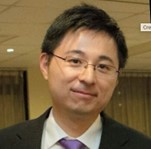
Brisbane Chinese Language School, info@bcls.net.au
Richard Yang is President of Brisbane Chinese Language School, Queensland’s largest community language-and-arts nonprofit, serving 2,000 students with over 100 passionate teachers across four campuses. A seasoned software consultant by day, Richard bridges technology and culture, advocating bilingual education, digital pedagogy and Asian-Australian storytelling.
Youngeun Kim
Brisbane Korean Central Presbyterian Church Korean language School, viva922@gmail.com
Dr Youngeun Kim is Director of a Korean Language School and Prime Academy. She holds a Ph.D. in Applied Mathematics and Statistics from SUNY Stony Brook. She previously taught statistics at the School of Economics, UQ, and currently tutors high school mathematics privately.
Sunmi Son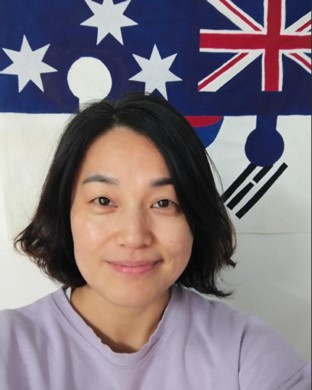
Brisbane Korean Central Presbyterian Church Korean language School, smjw4661@naver.com
Sunmi Son has taught Korean at BKCPC Korean Language School since 2012, focusing on Grades 7–12 since 2017 and ATAR (SEE Korean) since 2020. Previously, she taught high school in Korea for five years. A dedicated educator, she brings passion and experience to supporting students' Korean language learning.
Makiko Rowlinson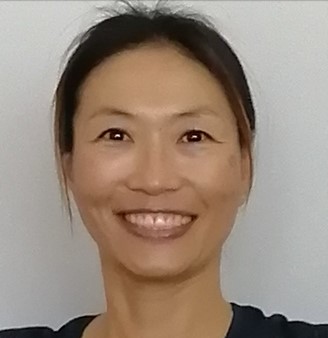
Japanese School of Queensland, Gold Coast, m.rowlinson@jsgc.org.au
Makiko Rowlinson is an educator with over 20 years of experience in Japan and Australia. I currently teach Japanese to Australian students at a state school and mathematics to Year 8 and 9 students at the Japanese School of Queensland. I’m passionate about helping children find their path and nurture their identity.
Nguyen Duong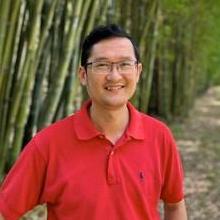
Trung Vuong Vietnamese Language School, duong.nguyen@yeutiengviet.net
Dr Nguyen Duong is the Director of Yeu Tieng Viet, a language school in Brisbane offering Vietnamese courses for children in around 30 countries. He is one of the Global Vietnamese Language Ambassadors. His research interests include teaching Vietnamese as a heritage language, children language development, and conversation analysis.

